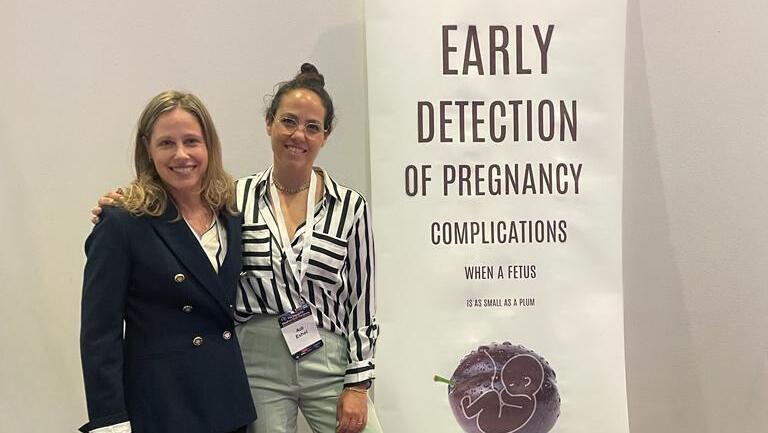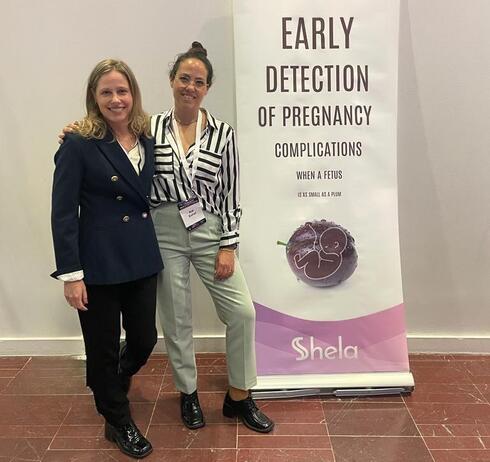
FemTech
From passion to innovation: Unleashing the power of FemTech in Israel's health landscape
Sharon Handelman-Gotlib's journey to co-founding Shela and the promise of transformative women's health solutions
Like many founders in Israel’s FemTech space, Sharon Handelman-Gotlib’s interest in FemTech was sparked during the Covid epidemic. Heavily involved in Israel’s health and innovation sectors for years, Handelman-Gotlib held various managerial roles at Teva Pharmaceuticals before leading innovation at Maccabi, one of Israel’s main HMOs. She became increasingly interested in the intersection between digitized health and innovation, in particular women’s health, but was struggling to find the exact space that married her interests.
“During Covid, I came across a post about FemTech on Facebook. I was very active in women’s rights and health and innovation - that's what I do on a daily basis - yet I came across it and thought that's not a sector that I'm really familiar with - what does it even mean?
“It really shook me that I'm so into digital health, and I know so many of the startups, but I had no idea what FemTech was. Then I started digging and I said, well, this ticks all the boxes of who I am: it's innovation, it's health, it's women centric and women driven. Clearly, this is my space.”
Handelman-Gotlib quickly became active in the nascent community, both engaging with and helping to build the local FemTech ecosystem, including FemTech Israel, the online hub and community.
Related articles:
“I think today that FemTech is not considered a niche anymore and investors are understanding its value and business potential. That's something that we've managed, as women, to convey," says Handelman-Gotlib.
Earlier this year, she co-founded a FemTech startup, Shela, with CSO Adi Eshel, Professor Omry Koren, Head of the Microbiome Research Lab at Bar-Ilan University, Professor Yoram Louzoun, Head of Math and Machine Learning at Bar-Ilan University, and Dr. Avi Tsur, Director of the Women’s Health Innovation Center at Sheba Tel-Hashomer Medical Center. Shela's technology is based on a collaborative project between Bar-Ilan University and Sheba hospital.
Shela, which is Hebrew for “her’s,” is a platform that predicts and ideally prevents women’s health issues. “It’s an early diagnostic and predictive tool for women's health challenges and complications throughout various life stages. It also provides the ability to receive precision-based solutions.” At this stage, Handelman-Gotlib says that they are focusing on pregnancy and labor complications, but that they intend to expand the platform to many other women’s health issues and life stages. The goal is for Shela to operate as a “women’s health life-long companion,” to provide health assessments and solutions based on the individual woman’s microbiome - her individual health profile. The AI-based solution incorporates machine learning and integrated multiomics.
Handelman-Gotlib says that Shela’s platform allows for early detection of health complications in pregnancy. “When the fetus is the size of a plum, we can detect and identify with extreme accuracy, key pregnancy complications, including pre-eclampsia and gestational diabetes.”
She notes that at least one out of five pregnancies have complications, including in much of the developed world. In the U.S., which already has the highest maternal mortality rate among developed countries, there has been a massive rise in maternal mortality in the last three years. In addition to detection, Shela’s solution also assesses the patient's risk level and provides personalized solutions for patients.
The market for pregnancy, post-partum and post-natal solutions is worth $32 billion, Handelman-Gotlib says. Since pregnancy complications and postpartum have severe lateral and long-term impact, including on the child in addition to the mother, the amount of savings from more effective and personalized solutions is actually even greater.
Shela’s solution will also help address the personnel shortage in the healthcare industry, Handelman-Gotlib says. “In the U.S. there are almost 9,000 OB-GYNs needed. If you look at it on a global basis, we're short around 900,000 personnel including, midwives, nurses, clinicians, etc. Unless we integrate technological solutions out there today, we won’t be able to address this shortage.”
